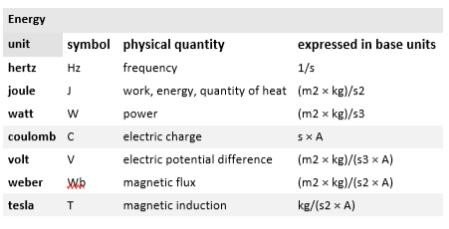Measuring EMFs: Don't Whip Out That Ruler Just Yet Boys!
We know that everything is energy, and we're curious about how particular energies called electromagnetic fields (EMFs) affect human health.
If you haven't already, please take a moment to read our first posts on this topic:
- What Are EMFs, How Do They Work, & Why Do They Matter?
- What is RF Radiation & How Does It Affect Health?
- EMF Effects: Let's Talk About DNA!
While the human body, Earth itself, and other cosmic bodies including the sun also create RFs (as well as other EMFs), we are particularly interested to know what kinds of energies are generated by modern appliances, devices, and technology. Is there potential harm from exposure to these types of EMFs? If so, what can we do to protect ourselves?
These are questions we hope to answer in this series. This is a dense subject, so we want to lay a solid basis of understanding before adding more complex layers.
Modern science, with its propensity to compartmentalize everything, describes energy in terms of electricity and magnetism. Humans created the electromagnetic spectrum to summarize their understanding of known types of energy:

source
For this series, we are going to look at a small range on the EMF spectrum concerning low to high radiofrequencies (RFs) as they are emitted by electronics. Note that while all RFs are EMFs, not all EMFs are RFs.
We just got a fancy new RF meter with which we will be conducting a series of experiments, and we need a clear understanding of fundamentals to analyze & share the results.
Today, let's talk about terminology and units of measurement for EMFs and specifically within the RF range.
Electricity is actually a chemical reaction that describes the existence of charged particles and often refers to the movement of electrons, although it can also refer to a static accumulation of charge. An electrical flow can be measured as alternating or direct current (AC vs. DC).
- Direct Current (DC) - electric charge (current) only flows in one direction.
- Alternating Current (AC) - the current periodically switches direction. Because the current switches direction, voltage also reverses periodically.
- Voltage - a measure of current (electric charge), given in units of volts.
- Polarity - a difference in charges. A water molecule, for example, exhibits polarity: it has a slightly positive side and a slightly negative side due to an uneven distribution of electron density. Can also describe a difference in magnetism, such as a north or south pole on a planet. Indicates direction of an electric or magnetic field.
- Frequency - the number of crests of a wave that move past a given point per unit of time. RFs can be delineated as low and high frequencies.
- Wavelength - distance between crests of a wave.
- Magnetic Flux - measures the magnetic field that passes through a given area.
- Power - the rate of doing work given a unit of time. Measured in watts, which is equivalent to joules per second.
- Work - describes an energy transfer. Work is done when force is applied to move an object over a distance.
There are of course many, many ways to measure and analyze energy and many, many units to describe certain characteristics.

Our RF meter is able to read both low and high frequency energies and is capable of giving the results in a number of interrelated units. For our purposes, we will discuss RFs using these units per the International System of Units (SI):
- Hertz (Hz) - a measure of frequency indicating the number of cycles per second for any phenomenon with regular periodic variations.
- Gauss (G) - measures magnetic flux density.
- Watt (W) - measures power, specifically how much power is needed in 1 second to generate 1 joule.
- Joule (J) - measures a transfer of energy. It is defined as the work done when the point of application of a certain amount of force (called a newton) is displaced one meter in the direction of the force.
- Decibel-milliwatts (dBm) - another measure of power specifically for RFs, given as a ratio of decibels to milliwatts.
- Ampere (A or amp) - a measurement of electrical current. It is the current that flows with a charge of one Coulomb per second. 1 amp = 1 C/s
- Tesla (T) - standard unit of magnetic flux density. Can be calculated in terms of amps or webers:
1 Tesla = one kilogram per second squared per ampere (1 kg/s^2/amp) = one weber per meter squared (Wb/m^2) - Weber (W) - another measurement of magnetic flux. One weber per meter squared (Wb/m^2) = One Tesla.
- Volt (V) - a measure of voltage, which is electric charge or current.
This is foundational information that we will build upon in future posts. We will do our best to present this potentially heavy info in a clear and relevant manner. Do you have any questions?
We hope this will inspire you to do additional research and work towards the best possible health for yourself!
For additional resources on this topic, please check out some of these links and the ones above:
http://www.home-biology.com/electromagnetic-field-radiation-meters/how-to-measure-electromagnetic-radiation
https://www.britannica.com/science/International-System-of-Units
*This information is not intended to be medical advice; it is just shared research & experience.
For more inspiration, support, and service, please sign up for our newsletter! Once a week, we will deliver sustainable health & wellness insight and so much more straight to your inbox!
www.intothegardenofeden.com

EMF is a wave and that affects human and many ways
Yes your right.
nice nice subject and photo please please press upvot
This is spam and will get you more flags than upvotes .
nice nice subject and photo please please press upvot
The EMF that everyone is surrounded everyday is incredibly low energy and not really dangerous. At least not in a substantial way
It just depends on who you talk to or what research you look at. This is why we are sharing so much information so people can make up their own minds. We are not telling people what to believe.
Ever hear of AM Radio ? Amplitude Modulation, as opposed to FM (Frequency Modulation). The Amplitude Modulated (AM radio) carrier frequencies are in the frequency range 535-1605 kHz. Carrier frequencies of 540 to 1600 kHz are assigned at 10 kHz intervals. The FM radio band is from 88 to 108 MHz between VHF television Channels 6 and 7.
Most of the people that worked on or serviced those AM towers died from radiation poisoning, or complications due to radiation poisoning.
"The EMF that everyone is surrounded everyday is incredibly low energy and not really dangerous. At least not in a substantial way"
Is exactly what the .Gov has been saying since the invention of the radio and RF products.
Have you tested EMF's yourself and compared them to case studies of long term health effects @crypticname?
thanks for human health tips ..
upvoted
WHAT?